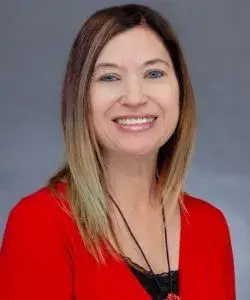Living in Florida, many of us are accustomed to thunderstorms, lightning strikes, and hurricane preparedness plans. I’ll be the first to admit then when I start hearing about the spaghetti models, I don’t really get too worried. Unfortunately, after witnessing the devastation that Hurricane Helene brought not only to Florida but to so many other areas, I’ll be sure to be more attentive in the future. Depending on how you were affected, you might be thinking about how you can help others or how you can find help for your own family. In this article, I would like to share some tips for both adults and children as we navigate life following the hurricane.
Tips for Everyone
- Seek out resources or be a resource for others. Do not be afraid to ask for assistance from others. There are many businesses and organizations that are willing to assist with cleanup as well as food and clothing needs. So many people throughout the Southeast have lost homes and valuables and some families have suffered the loss of a family member due to the storm. If you were fortunate to not be affected by the storm, consider offering help to those who were affected. Helping can include cleaning up debris, collecting items for families, making a meal, or helping these families locate resources. Support systems are invaluable during natural disasters.
- Take breaks. The time period following any natural disaster can be very stressful. Some individuals become so motivated to clean up or start repairing the area, that they forget to take breaks. It is important to step away even for a few moments to gather one’s thoughts and to avoid exhaustion. Additionally, make sure that you are safe while cleaning up the area or your home.
- Take time to grieve. During any time of loss, it is important to take time to grieve over what was lost. Many material items can be replaced with time, but there are some valuables that are irreplaceable. Allow yourself time to express your emotions.
- Share stories. Along with taking time to grieve and process the loss, it can be valuable to share stories about good moments spent in the home or at a particular location that was damaged. Journaling also is a good way to express your feelings regarding the event and the loss you experienced.
- Create a plan for the future. Natural disasters can occur when we least expect it. Even though hurricanes give some warning, these storms as well as other natural disasters can be unpredictable. The plan may include meeting places in the event that someone cannot get home as well as gathering items that should be available in the home.
Dealing with the aftermath of a hurricane or other natural disaster can be even more difficult when children are in the home.
Tips for Parents
- Offer reassurance. Parents who are dealing with the aftermath of the hurricane will need to be attentive to their children’s needs and concerns. While the missing teddy bear may not seem important as other lost items, it could hold a special value to the child. Children may need reassurance that the family will get through this difficult time.
- Coping with fears. Children may also become afraid when there are thunderstorms because they are unsure of what the effects might be. Listen to their concerns and answer any questions that they might have regarding this hurricane or future weather.
- Let them be part of the plan. When making a hurricane or other plan, let the children be involved in the planning. This might help them gain some sense of control in a time of uncertainty.
Helping Others
Saint Leo University Athletics is supporting the Rotary Club of Wesley Chapel and accepting donation items for those affected by Hurricane Helene. The Athletics Department will accept items at all home events through Thursday, October 10. Items may also be dropped off in the Marion Bowman Activities Center during working hours.
Read more here.
Dr. Tammy Lowery Zacchilli is a professor of psychology in the College of Arts, Sciences, and Allied Services at Saint Leo University and teaches the popular course, Psychology of Parenting. She is the Southeastern Regional Vice President of Psi Chi and associate editor of the Psi Chi Journal of Psychological Research. Zacchilli earned her bachelor’s degree from Kennesaw State University; her master’s from Augusta State University; and her PhD from Texas Tech.


